- November 16, 2022
- By Karen Shih ’09
The colorful woven baskets, vibrant kente-cloth prints and imposing masks in Eliza Thompson’s office offer a glimpse into the warmth and beauty of her Ghanaian roots.
“I want to show people a different narrative of Africa,” said Thompson, than the impoverished, war-torn society often portrayed in popular media. Decorating her office in LeFrak Hall is a way to share her heritage with her colleagues and students in the Department of Hearing and Speech Sciences (HESP), where she has been an assistant clinical professor since 2018.
She’ll do just that in a new study-abroad trip she’s leading next summer. Through the Global Perspectives in Service-Learning program, Thompson will take HESP undergraduate and graduate students to Accra, Ghana’s capital city, to work in special needs schools as well as community clinics and hospitals for 10 days.
The trip ties together Thompson’s passion for her homeland and speech-language pathology, as well as her interest in bringing more Black and underrepresented students into the profession. Her clinical focus is on child language issues including autism, stuttering and dyslexia, especially in multicultural populations.
“Communication is a basic human right,” said Thompson, who originally planned to become a doctor. A college roommate introduced her to speech-language pathology because of Thompson’s interest in medicine and her chattiness, and now, she now can’t imagine herself in any other job. “I was the one who used to get in trouble as a kid because I would talk to everyone else and keep them from getting their work done! And now I get paid to teach people how to talk.”
Thompson explained the secret identity of the apparent terrapin on her wall, how she honors her ancestors through art and what she’ll show her students on the trip.
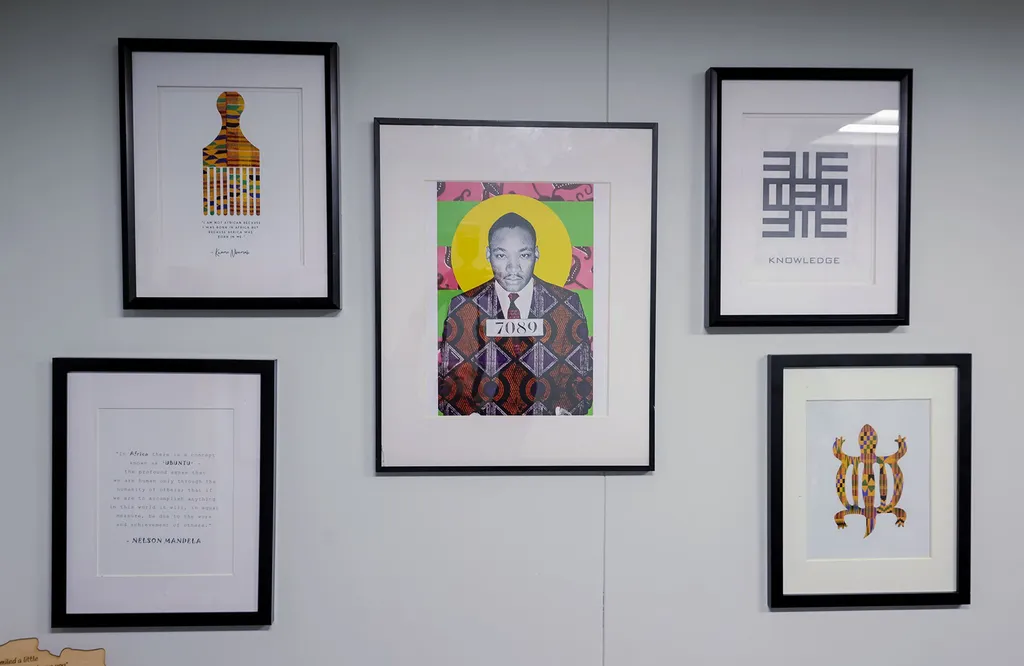
Adinkra symbols
These markings are everywhere in Ghana, carved into walls and woven into fabrics, representing concepts like leadership, patience and peace.
The turtle-like creature is actually a crocodile, called a “denkyem,” but “for our purposes it is a terrapin,” Thompson said with a laugh. Because these reptiles live in water but breathe air, the symbol means “adaptability,” which is why she chose it to represent the study abroad program.
“That’s important because we’re going to adapt to the people and culture and Ghana, not the other way around,” she said. That includes partnering with faculty and students at the University of Ghana and creating materials specifically tailored for patients in Twi, a local language.
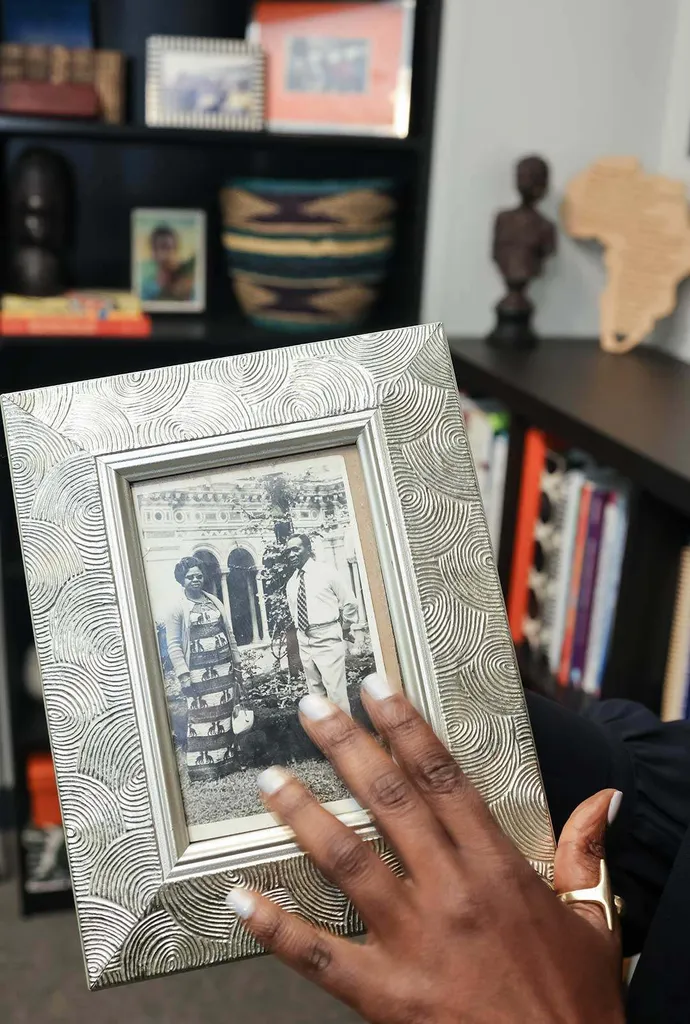
Market women
Both of Thompson’s grandmothers worked in busy marketplaces that serve as central gathering spots and economic engines throughout West Africa.
“I always remember that I would not be here today if it wasn’t for these women who worked so hard,” she said. Her maternal grandmother (pictured at right), who helped raise her, sold a lot of cloth and instilled in Thompson a love for different patterns and fabrics, especially kente cloth, once reserved for royals.
(The cloth is also featured in her print above, which transforms Martin Luther King Jr.'s mugshot with a vivid background of woven designs.)
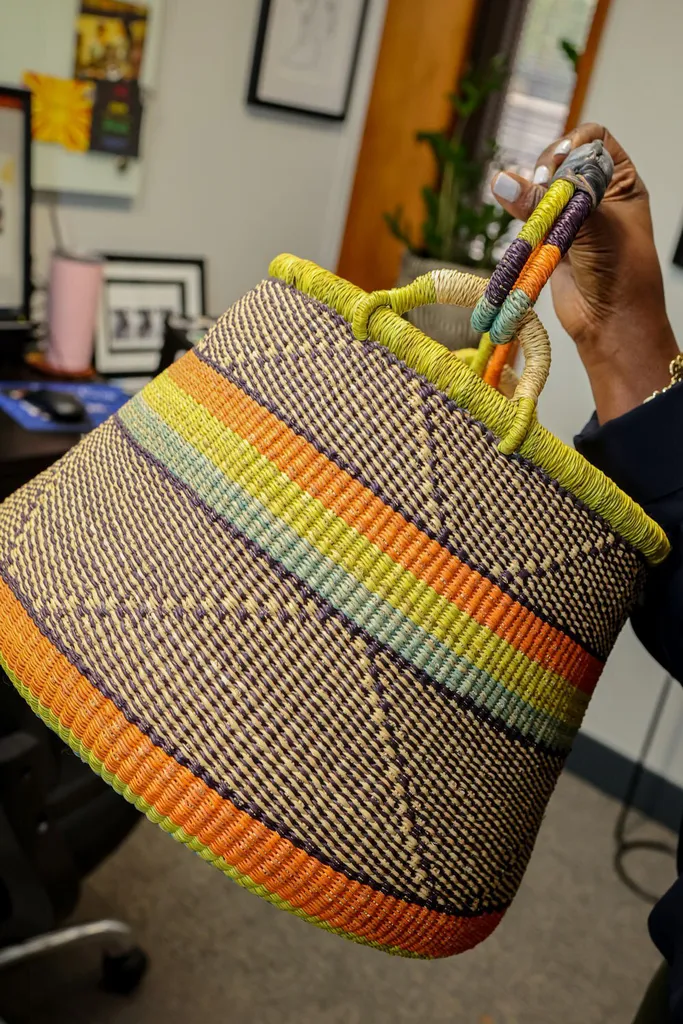
Sweetgrass baskets
These “bolgatanga” baskets, originally from northern Ghana, are ubiquitous for storage and transportation—they’re often balanced atop women’s heads.
“If you go to the Gullah part of South Carolina, you’ll see them making almost the exact same thing. It’s beautiful to me to think that even all those years removed, they’re still making them in Charleston,” she said.
To educate the study abroad students about the legacy of the trans-Atlantic slave trade, Thompson plans to take them to one of the more than 100 former slave ports that dot the coast of Ghana. “As we’re talking about DEI (diversity, equity and inclusion) issues and health disparities and all of this, I want the students to understand how this is all connected.”
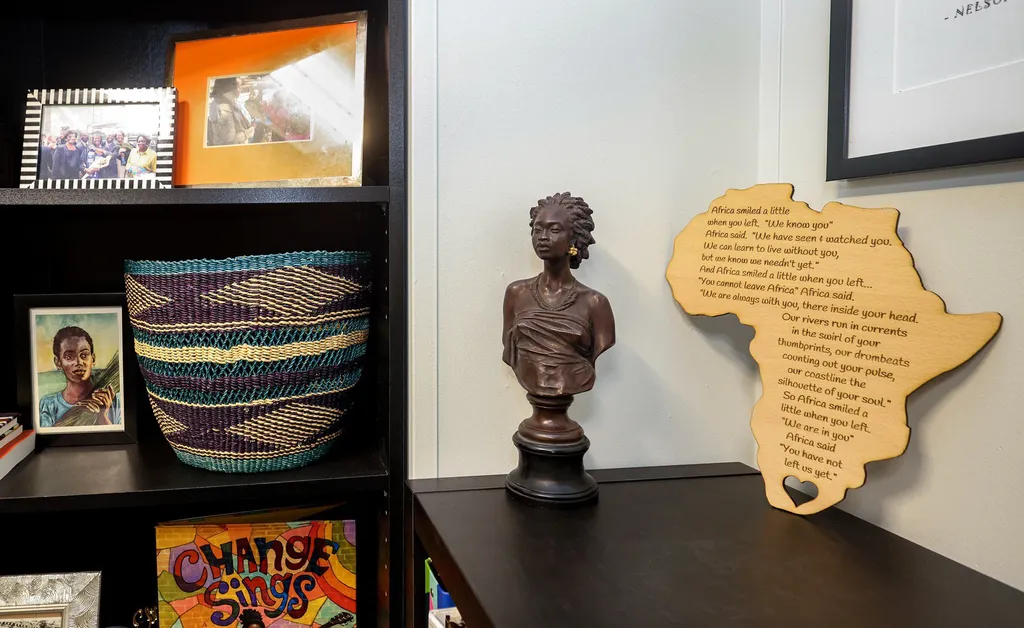
African Venus
“This is a gift someone gave me when I graduated from grad school. They said it looked like me!” Thompson said about the roughly one-foot-tall statue. “I love it. It’s from the 1800s and it’s actually one of the first busts done of an enslaved woman.” The original piece is in the Walters Art Museum in Baltimore.
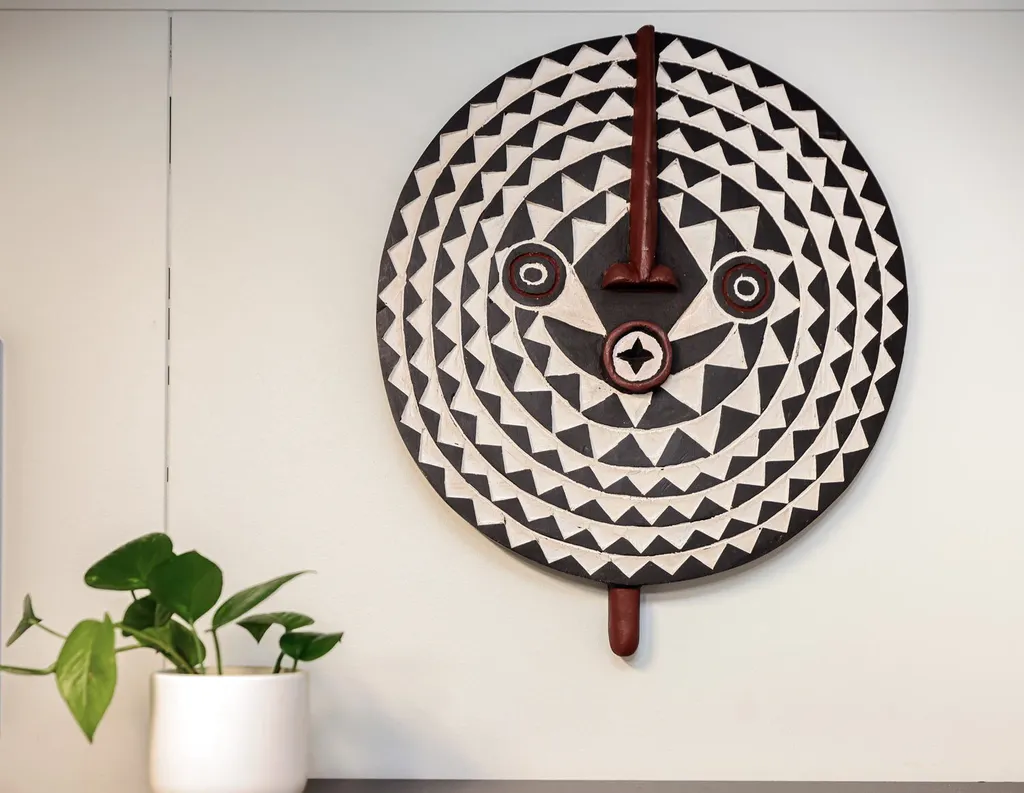
Traditional masks
The circular mask above her bookshelf, made of wood and painted black and white, represents protection and wisdom and kicked off her office decorating spree after she returned to the office post-pandemic. The three wooden masks above her green velvet couch resemble vertically stretched faces, each with a different expression, and also symbolize protection and beauty.
The space is now more appealing to students. “There’s a queue in here on Fridays. They tell me, ‘Your office is so cozy!’” she said. “They’ll come in here if they’re having problems, if they want to ask about grad school, or one student just came to share videos of her little cousin and language development. It reminds me of why I wanted to become a professor and make a difference.”
This is part of an occasional series offering a look inside some of the most interesting faculty and staff offices around campus. Think you have a cool workspace—or know someone’s that you’d like to recommend? Email kshih@umd.edu.
